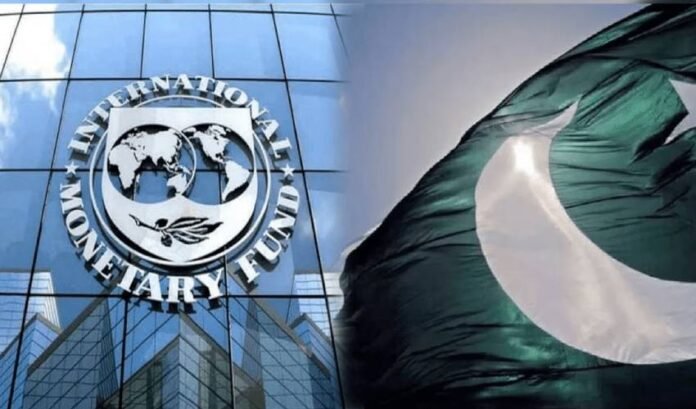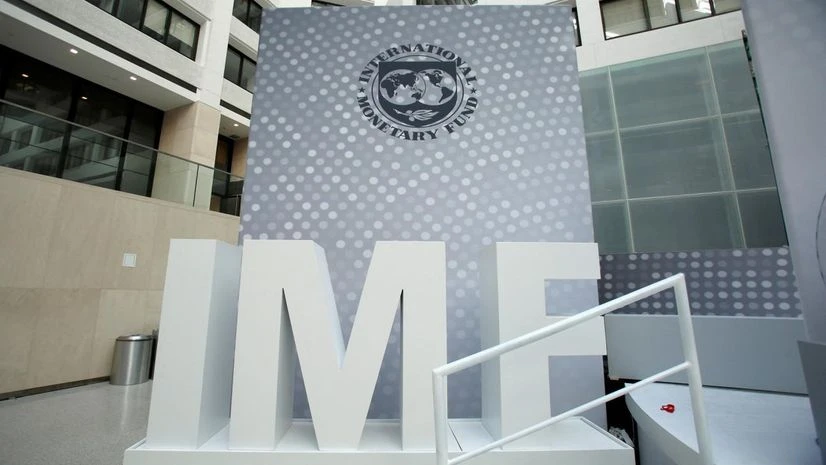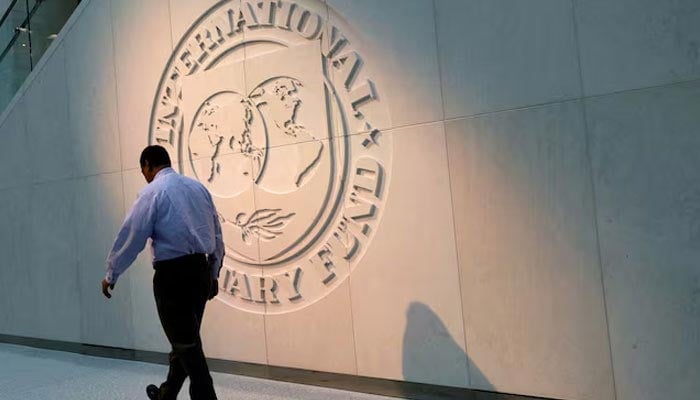
External Financing Needs Take Center Stage as IMF to Review Pakistan’s Loan Challenges
External Financing Needs: The International Monetary Fund, or IMF, would hold unscheduled performance review talks with Pakistan next week with a focus on reducing the country’s external financing burden. This is how, according to a recent media report, the potential external financing gap of about USD 2.5 billion for the current fiscal year is supposed to be bridged through new foreign loans in the form of new foreign loans.
The talks come at a critical juncture in Pakistan’s schedule, with mounting economic pressures against it at a time when the global financial environment continues to be volatile. According to government sources, the IMF will closely examine the country’s external financing needs, particularly in light of delays in securing some of the planned foreign loans. These loans are crucial for Pakistan to meet its international obligations and stabilize the economy in the near term.
The USD 2.5 Billion Gap
The external financing gap is one such major challenge for country economic planners in Pakistan. This almost USD 2.5 billion gap covers the deficit in foreign exchange reserves currently available and needed to maintain necessary imports, service the debt, and keep the economy stable.
External Financing Needs: Whereas Pakistan has so far leaned on international lenders and bilateral agreements to bridge such gaps, the current situation seems particularly challenging. A combination of global economic conditions and weak fiscal health in Pakistan makes it tougher for the country to attain the required financing.
)
External Financing Needs in Focus as IMF Reviews Pakistan’s Economic Strategy
The IMF will be prepared to assume an indispensable role in fashioning the future trajectory of Pakistan’s economy by providing much-needed financial support and policy guidance as it enters into a support program. These steps will help Pakistan tackle its persisting economic crisis more effectively. The IMF would discuss and evaluate the viability of the financing plan of Pakistan and the speed with which Pakistan has implemented the announced reforms under the present agreement during the next leg of talks.
Such informal meetings do not cast much urgency on the matter. Sources in government have said that the outcome will determine whether Pakistan can make good on its promises and secure foreign loans lined up to be approved. A positive review would allow access to the next installment of IMF funds, which would stabilize the economy and reignite confidence about Pakistan’s financial prospects.
External Financing Needs: The significant stress in Pakistan’s finances is the size of the external financing gap. An obvious reason is the delayed disbursement of planned loans from friendly nations and international institutions. According to the officials, administrative and diplomatic bottlenecks have delayed the inflow of funds, which, they claim would have eased Pakistan’s financial woes and helped to keep the country afloat.
This IMF review will probably go to the root cause of delays that have occurred in these instances and make recommendations for how they can be speeded up in finalizing these loans. It may, on its own, ask the government to source funds elsewhere and to have further economic adjustments to ensure that fiscal sustainability is actualized.
External Financing Needs: The fruits of these talks will tell the tale for Pakistan’s economy. In the event of success, the support could be made through further financial inputs from the IMF to keep up the nation’s ailing economy in terms of a survival lifeline. Furthermore, such progress can help boost investors’ confidence – something that is needed to revive the economy.
In contrast, a stalemate in the discussions will worsen Pakistan’s economic conditions in terms of swelling inflation rates, a weakening rupee, and rock-bottom foreign exchange reserves. It is the government’s response to the demands of the IMF that will determine how much financial assistance it will receive in the future.
External Financing Needs: Pakistan will be required to commit itself to truly implementing structural reforms, fiscal discipline, and transparent governance to seek the much-needed support. Going by current expectations, it is likely that the IMF will focus on these areas in particular to determine whether Pakistan can live up to its commitments under this agreement.
Furthermore, the talks are also expected to look into alternative means of bridging the financing gap, wherein foreign loans are realized before an event occurs. This shall come by concerted efforts by all the stakeholders, among them financial institutions, diplomatic channels, and economic policymakers.
External Financing Needs: Fulfilling the needs of external financing for Pakistan is more than just satisfying the conditions of the IMF-it is laying down the framework for sustainable growth and addresses root causes for economic instability. Whether Pakistan can actually tread this road safely will be crucial for these next couple of weeks.
Coordinated efforts will have to devise a comprehensive plan which meets the IMF’s requirements but also gauges the nation’s broader economic needs. Balancing this way, the debt rescheduling and payment infrastructure stabilizes Pakistan’s economy and allows it to set off long-term growth.

External financing needs are top of mind as the IMF Mission Chief girds to take the formal discussion process to Pakistan on Tuesday. Finance Minister Muhammad Aurangzeb will also attend the session that marks the formal beginning of the critical review.
The IMF mission visit is unscheduled and shows the gravity of Pakistan’s economic situation. This visit is going to precede the first formal review that was scheduled in March 2025 and was aligned with the second tranche disbursement of USD 1.1 billion. The visit in advance gives out that Pakistan’s financial challenges need redressal on the immediate order of things.
External financing needs are still a major challenge facing Pakistan, as delays in borrowing from the bilateral creditors are blocking the efforts being made to close the funding gap. The cumulative gap in external financing was estimated by the Washington-based IMF at USD 5 billion over the period 2024-2027. For the current fiscal year, it is alone estimated to stand at USD 2.5 billion.
However, Pakistani officials believe this gap would be smaller than envisaged five months ago and feel it stands a better chance because of the improved performance in the external sector. All this glee does not alleviate the urgency of steps to spur loan agreements for the purpose of restoring financial stability.

External Financing Needs Remain Unmet as Pakistan Faces Delays in Securing Key Loan Facilities
External financing needs are still the most significant challenge to Pakistan, even after a USD 7 billion package getting board approval from the International Monetary Fund in September. The country had expected USD 3.2 billion, which would be well above its USD 2.5 billion debt repayment programme. This programme will include much-needed USD 1.2 billion oil facility from Saudi Arabia, yet to be obtained.
Delays in finalizing the Saudi oil facility have complicated Pakistan’s finances. Five months into the fiscal year, no agreement has so far been reached, though sources mentioned that with each passing month, the otherwise readily available amount of money decreases by USD 100 million, thus straining the financial resources of Pakistan. Still, Pakistani authorities are optimistic they can still convince Riyadh to agree to extend the facility. On the other hand, Finance Ministry Spokesperson Qumar Abbasi refused to comment about the status of the USD 1.2 billion agreement in place.
External financing needs remain very significant for Pakistan, and a USD 1 billion loan from Dubai Islamic Bank is being pursued to help ease the strain. Besides this loan, Pakistan has also sought China’s rescheduling of around USD 3.4 billion debt owed to the China Export-Import (Exim) Bank. Of this, almost USD 750 million is to be repaid in the current year. Rescheduling of debt forms a prime constituent of Pakistan’s overall external financing strategy since it is part of the overall computation of financing requirements of the country. These attempts refer to the continued challenge in living up to the commitments at home and abroad despite facing a precarious situation of external pressure.
More importantly, the external financing needs are complicated by Pakistan’s deteriorated financial circumstances, which further weaken the ability of the country to service its debt repayment, and particularly debt repayment to China. The precarious fiscal situation of Pakistan and the conditions defined in the IMF agreement currently in effect have further restricted the government from utilizing its financial flexibility vis-à-vis managing the debt repayment schedule without recourse to external borrowing and rescheduling. This lack of flexibility underscores why the new government needs to negotiate good terms with the international creditors and institutions involved, including China, to make sure it can meet its commitments without driving the financial instability of the country into an extreme.
External Financing Needs Escalate as Pakistan Struggles to Manage Debt Repayments and Secure New Loans
External financing needs are becoming rather critical for Pakistan, especially with the growing debt obligations. Even though the total value of Chinese commercial debt stands at about USD 6.5 billion, about USD 3.9 billion of that would fall due in the current fiscal year. The government managed to rollover a USD 200 million debt which matured in September. But this time, the problem gets much bigger with a rollover of USD 1 billion by March 2025.
Currently, there has been no development on roping in another rollover for this payment and country remains vulnerable for liquidity shortfall. These looming obligations underscore the urgent need for Pakistan to find timely financing or face further economic instability.
External financing needs are complicated enough, but compounded by inclusion in the financing plan of the government of Pakistan of its most expensive loan so far: a USD 600 million facility from Standard Chartered Bank meant to infuse much-needed liquidity.
However, the country’s Finance Minister has since clarified that this facility would not be drawn upon, said a report in Global Hub 360. The decision to ditch this loan is reflective of the tight financial squeeze Pakistan finds itself in, with even the IMF backing away from this loan commitment. This is a move that underlines the fact that acquiring Pakistan’s strategy for external financing is full of growing complexities and the problem of getting cheap and viable financial solutions to meet the ends.
External financing needs have forced the IMF to make an unscheduled visit to Pakistan, just six weeks after the loan package was approved. Four months before the review in March 2025, a visit was made by the IMF to gauge overall performance against targets set for July through September and to have an estimate of the progress within the second quarter from October through December 2024. The intervention by the IMF reflects how urgent it is to address the financial challenges within the country while needing continued support to achieve economic goals.
External financing needs are turning increasingly crucial as Pakistan faces a huge shortfall in tax collection. Official figures have shown that there has been a Rs190 billion shortfall in tax revenue over the last four months. The FBR has collected Rs3.440 trillion despite which the shortfall was reported because its target was Rs3.632 trillion wherein it had levied record-high taxes this year. This has put a greater burden on the country’s financial position and suggests a need for more effective fiscal policies to meet various domestic as well as international financial obligations.
External financing needs are set to be a major concern in the examination of Pakistan’s macroeconomic framework by the IMF. Sources reveal that the IMF has shown interest in every single projection regarding the country and examining whether the fiscal strategy it adopted for the future time is viable or not. It remains to be seen if Pakistan can cope with the ambitious economic targets that it has set for itself and can garner sufficient external financing to overcome its present economic challenges.






